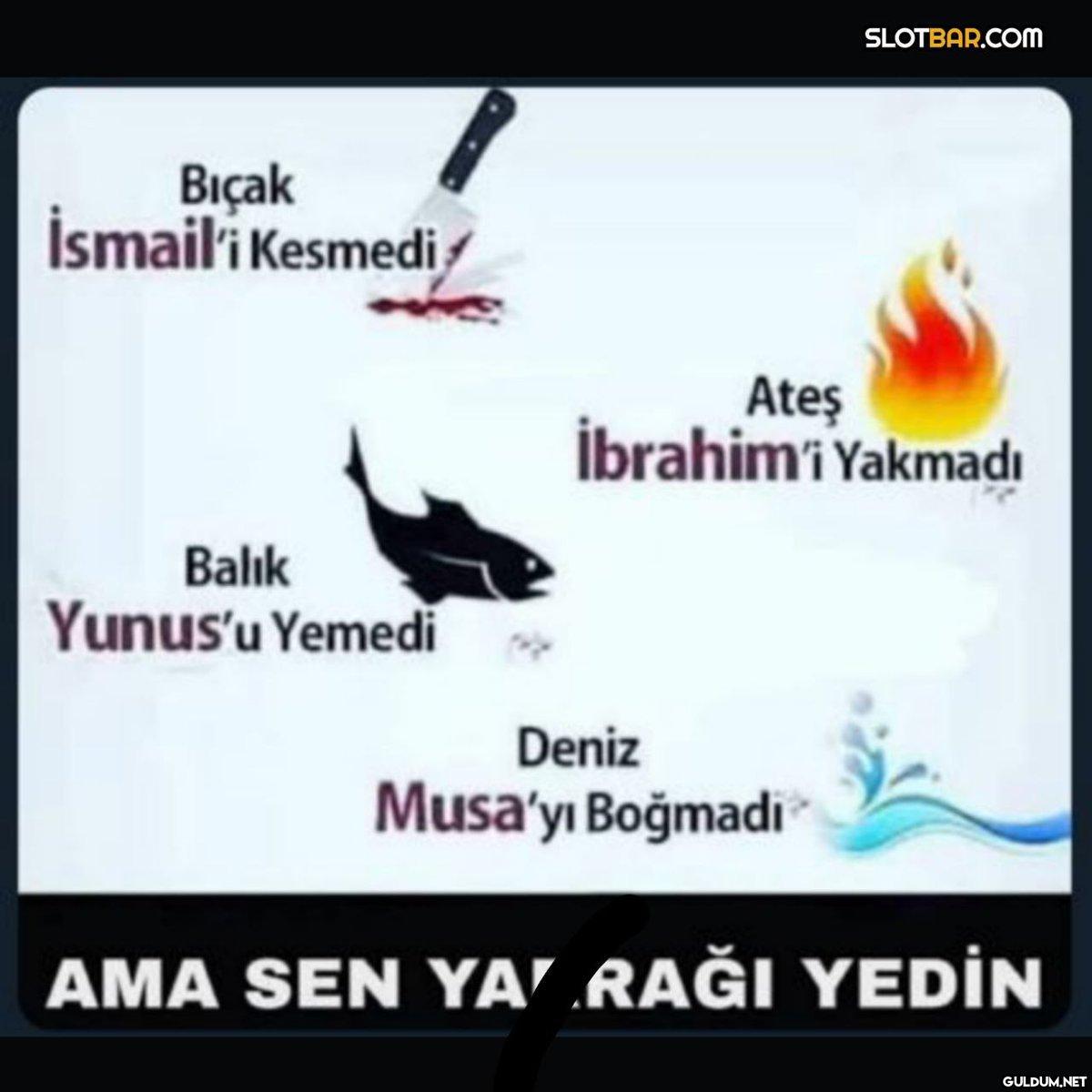Bıçak İsmail'i Kesmedi Balık Yunus'u Yemedi SLOTBAR.COM Ateş İbrahim'i Yakmadı Deniz Musa'yı Boğmadı AMA SEN YA’ RAĞI YEDİN
Kaynak
The image is a meme, likely shared on social media. It depicts various biblical stories with a humorous twist, using Turkish. **The image shows the following:** * **A knife:** The phrase "Bıçak İsmail'i Kesmedi" means "The knife didn't kill Ishmael" (a reference to a possible story, though it's not in the canonical Bible). The implication is that, in this scenario, the knife didn't do what it was supposed to do. * **A fish:** "Balık Yunus'u Yemedi" means "The fish didn't eat Jonah." Again, this twists a biblical story where Jonah was swallowed by a fish. * **Fire:** "Ateş İbrahim'i Yakmadı" means "The fire didn't burn Abraham" (a common reference to the story of Abraham being tested by God). * **The sea:** "Deniz Musa'yı Boğmadı" means "The sea didn't drown Moses." This is another reference to the biblical story of the parting of the Red Sea. **The final line: "AMA SEN YA RAĞI YEDİN" means "BUT YOU ATE THE CHOCOLATE CAKE."** **The Joke:** The humor in the meme comes from the juxtaposition of these biblical anecdotes with the final line. The image implies the situations were not as dramatic as the Bible portrays, or that the character in each story got the better of the fate intended for them. The use of common religious stories in this way makes it a common "meme template." The punchline then shifts from religion to a more mundane and potentially humorous comparison: "You" in the final line acts as a catch-all, implying the viewer or the general population. It implies these situations/characters had some form of survival, so someone (the audience or the subject being referenced) achieved something surprising or noteworthy, implying a similar twist/surprise. Essentially, the meme mocks the common belief and portrays the scenarios in a lighthearted, almost "it-wasn't-that-bad" way, ending with the simple, relatable, and slightly sarcastic "You ate the cake."

Henüz bişi yazılmamış